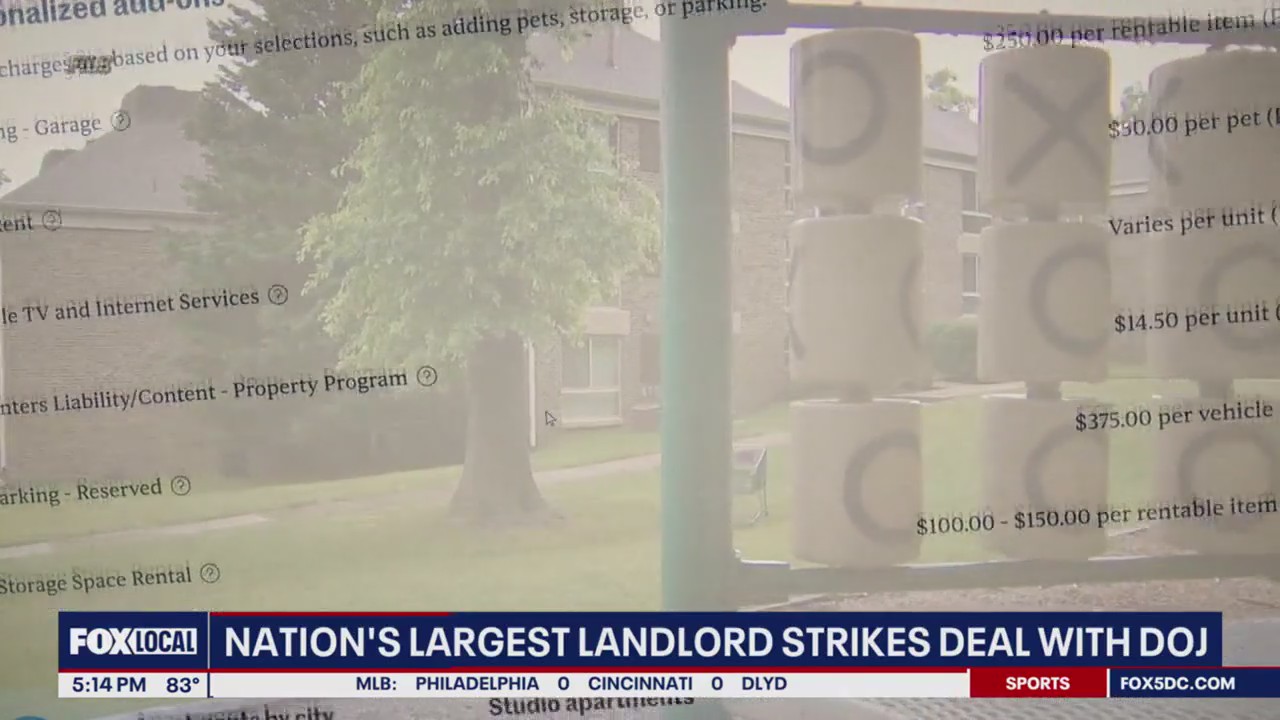WASHINGTON – In a landmark move for renters across the D.C., Maryland, and Virginia (DMV) region, the nation’s largest landlord has agreed to stop using artificial intelligence software to set rental prices. The decision follows a settlement with the U.S. Department of Justice (DOJ), which accused the landlord of participating in AI-driven price fixing.
Who’s Involved?
The company at the center of the deal is Greystar, the country’s largest property management firm. Greystar manages nearly one million rental units nationwide, with thousands of properties located in the Washington, D.C., Maryland, and Virginia area.
Federal attorneys alleged that Greystar and other landlords used an AI tool created by RealPage, a Texas-based tech company, to collude on rental pricing. By pooling sensitive data, landlords allegedly coordinated rent increases, ultimately squeezing tenants with fewer affordable options.
How the AI Software Worked
RealPage’s software gave landlords access to detailed pricing data across markets, enabling them to align rent hikes instead of competing against one another.
-
Landlords reportedly shared real-time pricing information through the software.
-
The algorithm recommended higher rents across multiple properties simultaneously.
-
In some cases, rental costs surged by 25% in just a single year for certain apartment complexes.
According to the D.C. Attorney General, more than 60% of large apartment buildings in Washington, D.C., used RealPage software to set rents. In the broader metro area—Washington, Arlington, and Alexandria—the figure jumped to 90% of all units.
The Legal Case Against Greystar
The Justice Department accused Greystar of using AI as a tool to reduce competition and artificially inflate housing costs. While the company agreed to halt its use of the software, it did not admit wrongdoing.
Attorney Madeline Summerville, who has closely followed the case, said the issue highlights the need for stronger regulations on how AI is used in the housing market.
“Price fixing was an issue, competition was an issue, and that’s a major reason AI regulation is necessary,” Summerville explained. “They were able to use AI and enter all this data in order to basically screw people out of their housing, to put it bluntly and frankly.”
Critics Say the Settlement Doesn’t Go Far Enough
While housing advocates welcomed the deal, some remain skeptical about its long-term impact. Summerville noted that Greystar’s settlement is only one piece of a much larger puzzle.
“They didn’t admit liability, they didn’t admit they did anything wrong,” she said. “The point is, the American people shouldn’t be subject to what the real estate companies can get away with.”
Watchdog group Accountable.us echoed this concern, calling the settlement a positive step but warning that many other companies still engage in similar practices.
“This is a win for renters who have been squeezed by corporate greed and AI-driven collusion,” the group said in a statement. “But with expenses rising, it’s not enough for one company to opt out of collusion. Elected officials must step up and tackle all price-gougers like RealPage.”
Broader Legal Action
The DOJ is not alone in its crackdown. Earlier this year, Maryland’s attorney general filed a lawsuit against RealPage, while in June, D.C.’s attorney general secured the first settlement against the company. The Justice Department also continues to pursue an ongoing case involving the broader use of AI in rental pricing.
These actions reflect growing scrutiny of how emerging technologies can be exploited in housing markets, where rising rents are already a pressing issue for millions of Americans.
Conclusion
For now, renters in the DMV and beyond may see some relief with Greystar stepping away from AI-driven rent algorithms. However, as critics stress, one company’s decision does not resolve the wider problem of AI-enabled collusion in the housing industry.
The settlement underscores a broader national debate: how should AI be regulated to ensure innovation benefits consumers rather than being used as a tool for corporate profit at the expense of affordable housing?

















Leave a Reply